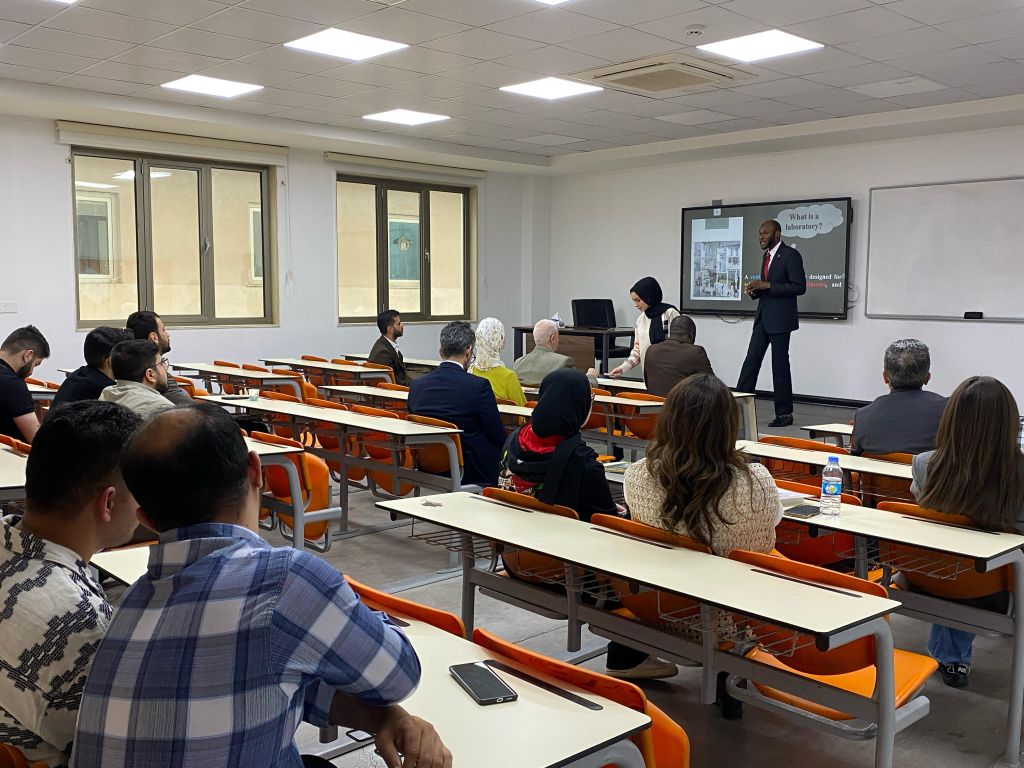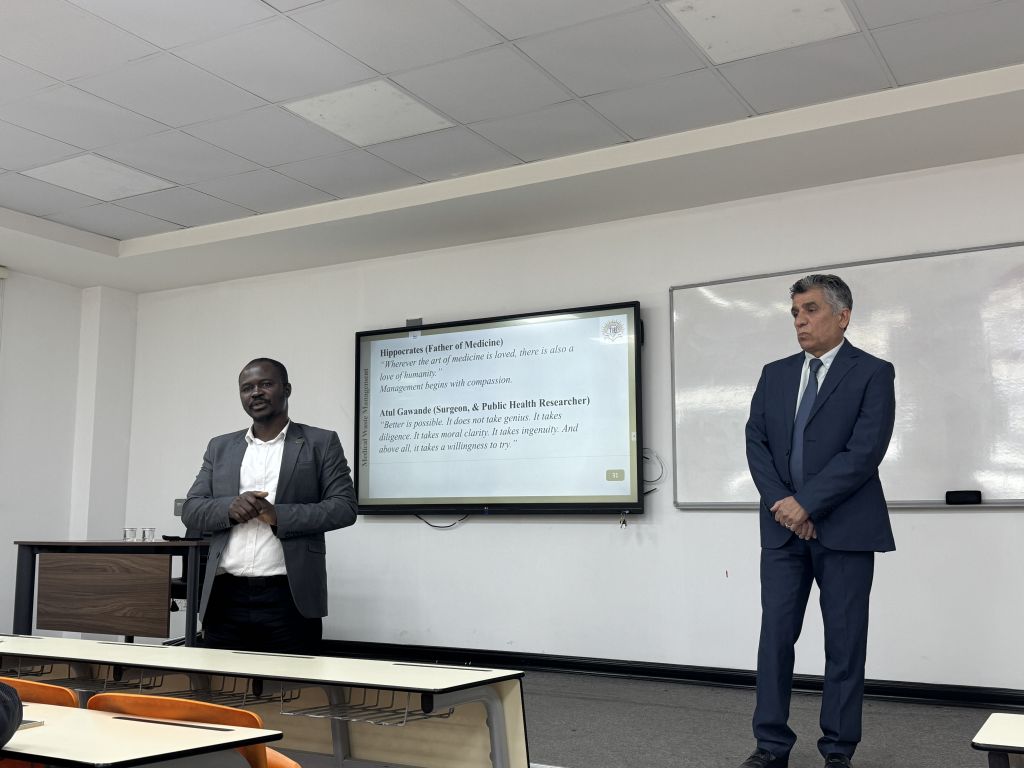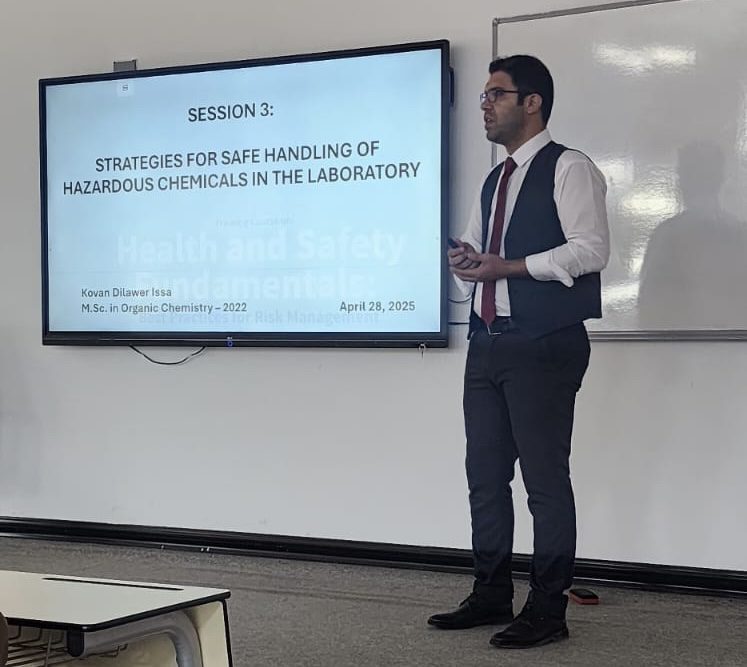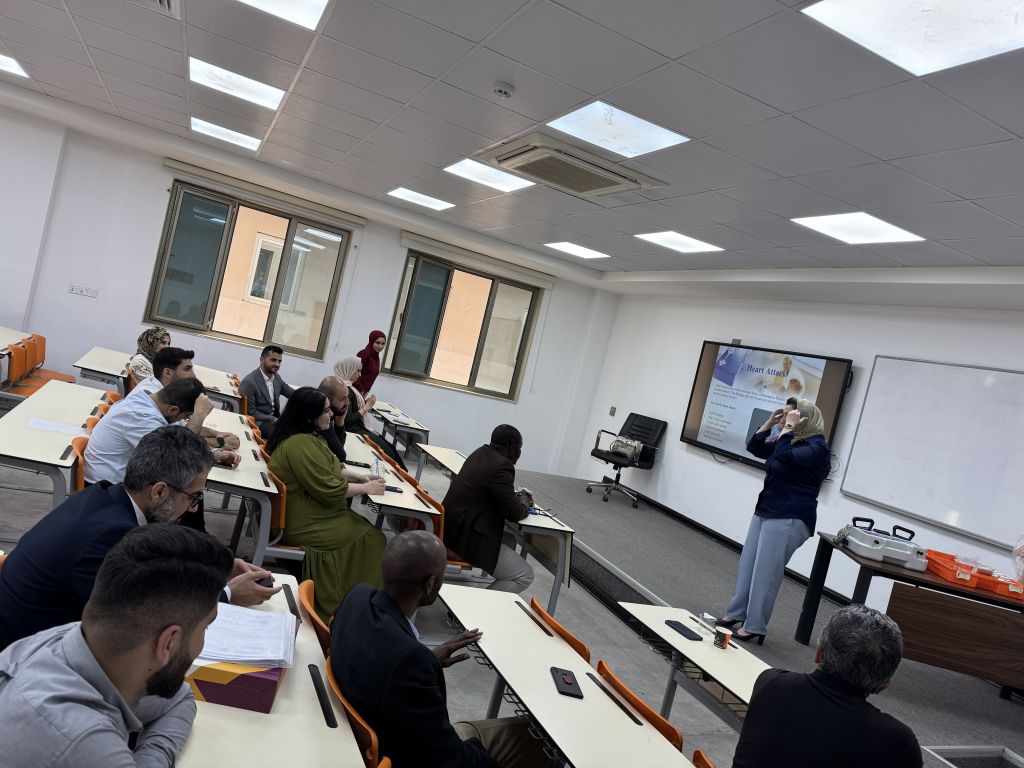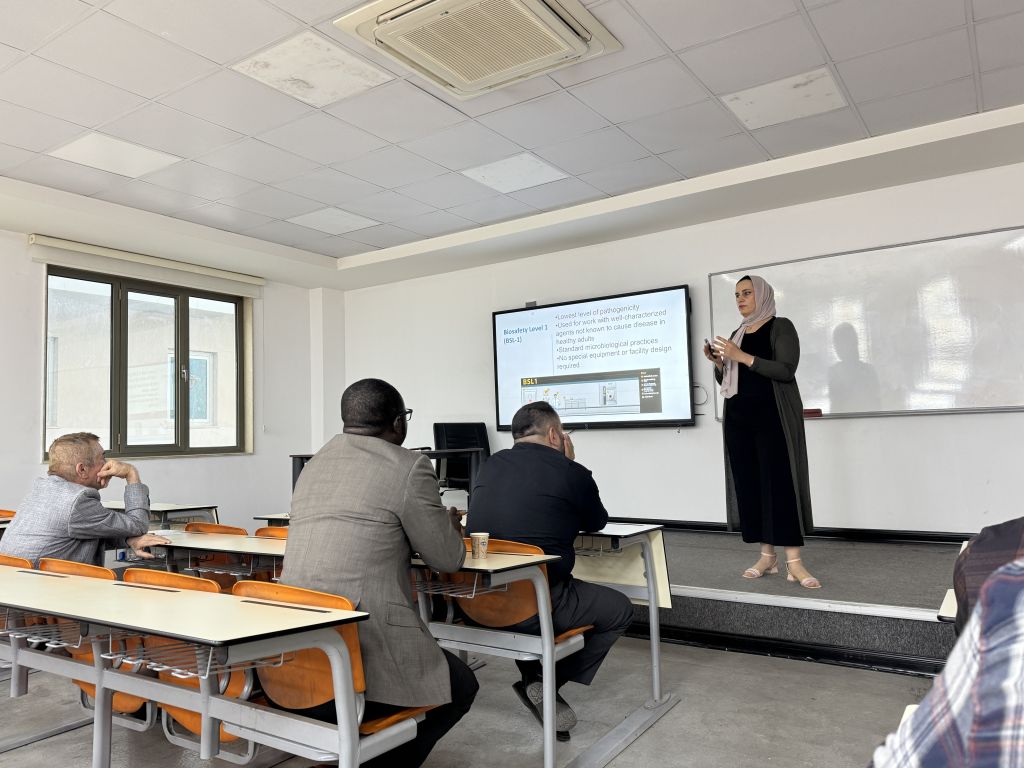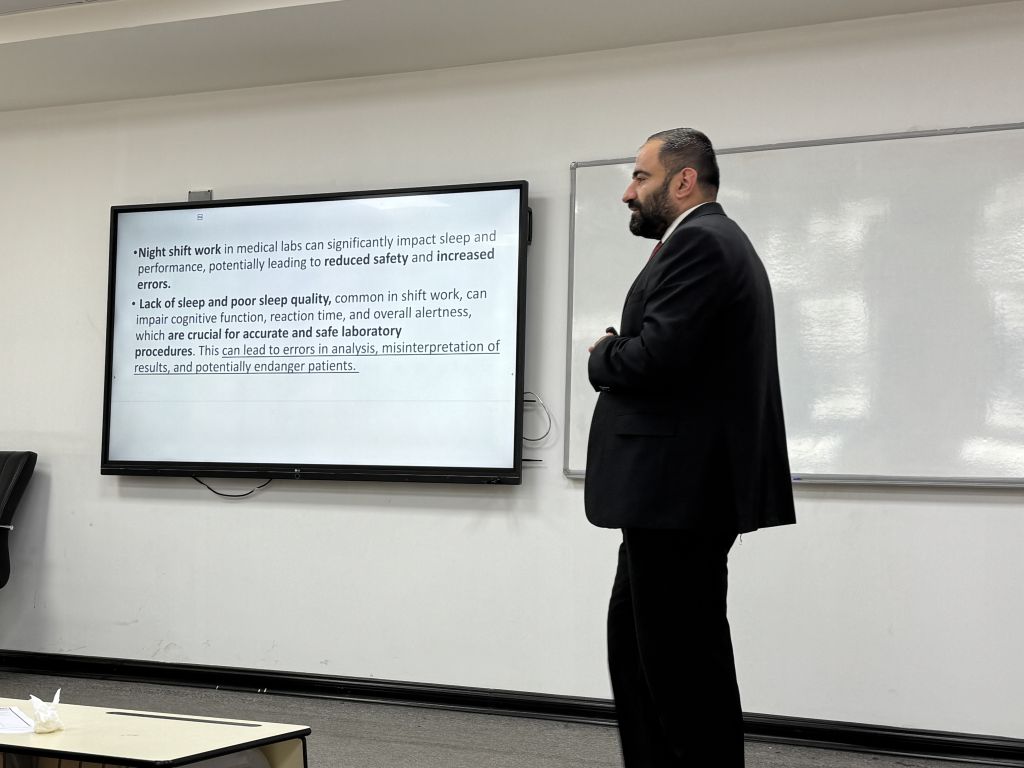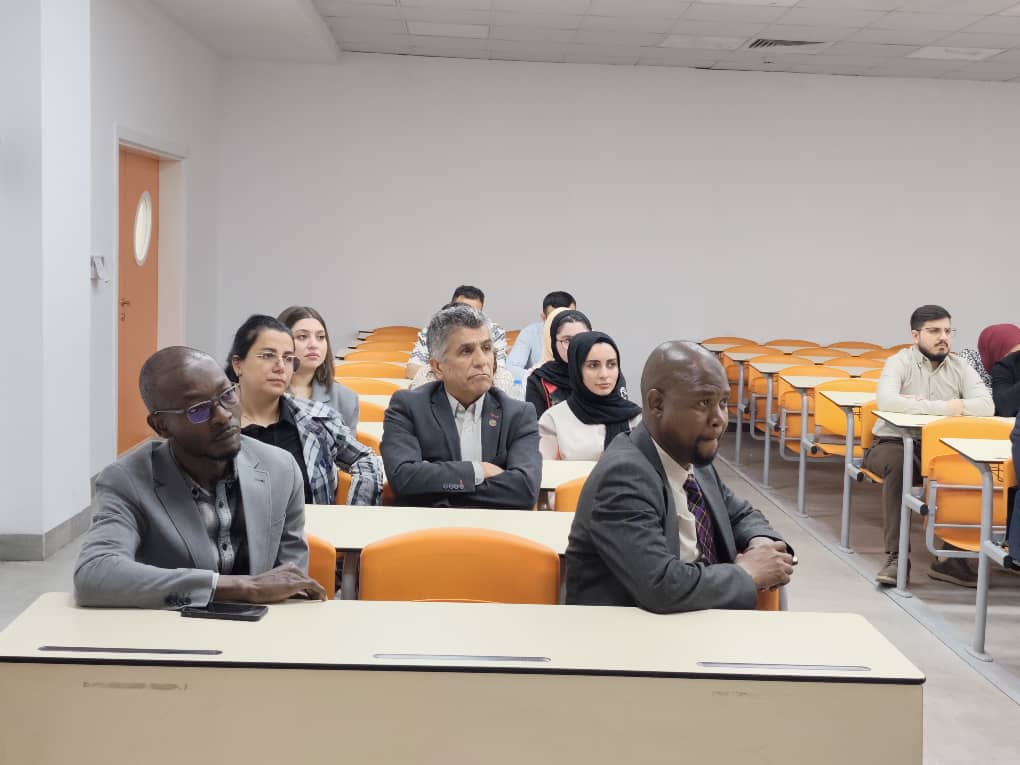Two-Month Safety Initiative Completion
The Medical Analysis Department at Tishk International University successfully organized a comprehensive Health and Safety Fundamentals Training Course spanning six sessions from April 14 to June 4, 2025. This intensive program brought together academic staff, laboratory technicians, and students to enhance safety awareness and practical skills in laboratory environments through a structured curriculum addressing multiple hazard categories.
Training Objectives and Learning Outcomes
The course aimed to equip participants with essential knowledge and competencies for managing laboratory hazards:
Primary Training Objectives:
-
Identify potential hazards including biological, chemical, and physical dangers
-
Develop proficiency in safe disposal of laboratory waste (sharps, infectious, and hazardous materials)
-
Enhance emergency response capabilities for laboratory-specific situations through first aid training
-
Improve chemical handling skills covering spill cleanup, storage, labeling, and usage protocols
-
Implement microbiological safety through appropriate biosafety levels and personal protective equipment
-
Integrate international standards and best practices into daily laboratory operations
Comprehensive Session-by-Session Curriculum
Session 1: Foundation (Dr. Jibril Habib)
-
Introduction to health and safety awareness in laboratory settings
-
Overview of laboratory components and common waste types
-
Establishment of safety fundamentals for subsequent sessions
Session 2: Waste Management (Dr. Jamil Baban)
-
Classification systems for laboratory waste materials
-
Detailed methodologies for safe handling procedures
-
Proper disposal techniques for various waste categories
Session 3: Chemical Safety (Mr. Kovan Dilawer)
-
Chemical hazard identification and risk assessment
-
Proper labeling protocols and storage requirements
-
Emergency handling techniques for chemical incidents
Session 4: Emergency Response
-
First aid application for laboratory-specific incidents
-
Response protocols for chemical spills, burns, and fainting
-
Stabilization strategies before professional medical assistance
Session 5: Microbiological Safety (Dr. Aryan Ganjo)
-
Biosafety practice implementation across different risk levels
-
Personal protective equipment (PPE) selection and usage
-
Decontamination procedures for biological materials
Session 6: Human Factors (Mr. Ramyar Kamal)
-
Sleep management importance for laboratory technicians
-
Melatonin regulation and circadian rhythm maintenance
-
Efficiency and concentration optimization during extended shifts
This training initiative demonstrates the Medical Analysis Department’s ongoing commitment to establishing and maintaining comprehensive safety protocols that protect personnel while promoting excellence in laboratory practices through continuous professional development.
Keywords: Laboratory Safety Training, Hazard Management, Emergency Response, Chemical Safety, Biosafety Protocols, Waste Disposal, Professional Development, Safety Standards

